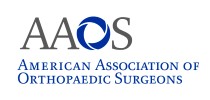 You are entering webpages belonging to the American Association of Orthopaedic Surgeons, which includes information and resources for Association advocacy efforts and the Political Action Committee of The American Association of Orthopaedic Surgeons (OrthoPAC).
You are entering webpages belonging to the American Association of Orthopaedic Surgeons, which includes information and resources for Association advocacy efforts and the Political Action Committee of The American Association of Orthopaedic Surgeons (OrthoPAC).
The health and welfare of patients are linked to the knowledge and skills physicians develop in the years immediately following graduation from medical school. During this typically three to seven year period of graduate medical training, young physicians ("residents") participate in the care of patients and study in supervised educational programs. The satisfactory completion of "Graduate Medical Education" (GME) in one of these approved programs is a prerequisite to achieving board certification in a medical or surgical specialty. Medical school graduates are physicians but cannot receive an unrestricted medical license to practice their profession without graduate medical education.
The American Academy of Orthopaedic Surgeons (AAOS) believes that graduate medical education is vital to the well-being of our health care system and must be maintained through strong financial support. Rising costs of providing patient care and diminishing funding sources for the additional financial burden of specialty graduate medical education compromises the ability of institutions to provide adequate physician training.
Position Statements
Important Resources
Comment/Congressional Letters
-
Physician Dentist Coalition REDI Act letter
-
Physician dentist coalition letter to Senate REDI Act sponsors
-
Support for Resident Physician Shortage Reduction Act
-
Letter Supporting the Resident Physician Shortage Reduction Act of 2019
-
AAOS Letter on Congressional GME Request for Information
-
Letter Opposing Reductions to GME
-
Letter Urging Exclusion of GME, IME, DSH Payments